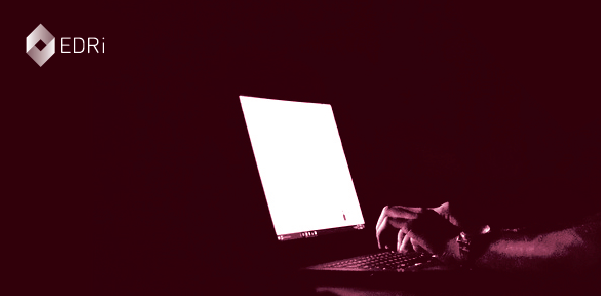Digital rights as a security objective: Abuses and loss of trust
Violations of human rights online can pose a real threat to our societies, from election’s security to societal polarisation. In this series of blogposts, we explain how and why digital rights must be treated as a security objective. In this third and final blogpost, we discuss how digital rights violations can exacerbate breaches to the rule of law in EU Member States and risk to undermine the already fragile project of the EU, including the European security aspects.
In our previous blogpost, we outlined how an unjustified reliance on algorithms can lead to unintentional censorship and new attack vectors for malicious actors. However, the upload filters that feature in the ongoing discussions for the Copyright Directive and the Terrorist Content Regulation also have a big potential for abuses by public authorities.
There’s a number of examples of state authorities misusing copyright for attacks on the freedom of expression and right to information: Chilling examples are for instance Ecuador, where critics of president Correa were flooded with copyright notices, and the recent attempt of the German government to curb quotes from an internal military report by claiming it as copyrighted material. In the context of counter-terrorism legislation, the situation looks even more severe; with the Commissioner for Human Rights of the Council of Europe recently decrying that “the misuse of anti-terrorism legislation has become one of the most widespread threats to freedom of expression, including media freedom, in Europe”. Laws that have given rise to this alarming assessment are for instance the Spanish “gag law”, which has been severely criticised by international human rights organisations, or the French counter-terrorism laws. The dangerous logic of prosecuting offences vaguely framed as “glorification of terrorism” has led to numerous convictions of citizens on the basis of arbitrariness or because of controversial, yet undoubtedly not terrorist opinions and ideas.
What will happen once such disputes about legitimate forms of expression do not go in front of courts any longer, but filter technologies prevent them from ever appearing in public debate in the first place? What if EU governments start to abuse the competences given to them to censor political journalists, human rights defenders, opponents or ideas they do not like, for instance by calling opposition parties or activists terrorists? What would such abuse mean for the Member States’ eroding trust into each other’s capacity to uphold the rule of law?
In the context of terrorism, the European Commission has proposed that law enforcement should have competences to demand from platforms the introduction of automated filtering technologies if they regard the companies’ own “proactive” measures of content moderation as not extensive enough. Furthermore, there shall be a possibility for the authorities to refer to specific pieces of content to internet companies for their “voluntary consideration”, with a high chance of such content to be taken down due to the hosting providers fear of being held liable for content stored on their servers. Such vague and imprecise measures are not only undermining the rule of law and freedom of expression – they are also bound to be misused. If national authorities with an established record of public interference with citizen’s digital rights start using the additional suppressive instruments provided by the EU in the same disproportionate way they do with their national measures, it will not take long until the courts in other Member States begin to question the extent to which the authorities in their jurisdiction can still cooperate with their abusive counterparts. This has already happened in other contexts: For instance, the CJEU’s decision that extraditions to Poland may be halted. In combination with very different interpretations of what constitutes an offence against the public (for instance, the case of Spanish rapper Valtonyc), cases in which the newly created tools will be deployed to censor voices that are seen as illegal one Member State but are seen as perfectly legal in other Member States can and will further divide the cohesion and integrity of the common area of freedom, security and justice. EU wide public security can only be reached through trust among European judiciaries and law enforcement that throughout cooperative cross-border actions, fundamental rights are respected in all Member States. Giving all EU Member State authorities new censorship powers will achieve nothing but the contrary of such trust – and will thus damage, not improve our security.
Despite some major steps ahead in digital freedoms such as the adoption of the General Data Protection Regulation GDPR , we are still far from realising that digital rights are not just fundamental civil liberties, but also a prerequisite for the security and pluralism of our societies. If we want disinformation to stop ravaging public debate, we should not allow that individuals are forced to automatically give waivers to tracking cookies because it gives publishers and the tracking industry some income. If we want to close the vulnerabilities of our public debate forums on the internet, we cannot impose new gateways for disinformation attacks on online platforms. If we want to prevent the new authoritarianism, we cannot give it more tools of censorship through copyright and the silent eroding of civil liberties in counter-terrorism pursuits.
EU citizens’ digital rights are first and foremost, but not only to the benefit of individuals: they must also be regarded as fundamental to the security of our democratic systems and societal cohesion, both within and across European Union countries. To keep our societies open, free and safe, we must place the rights of the individual at the heart of our internet policies.

Digital rights as a security objective: New gateways for attacks (19.12.2018)
https://edri.org/digital-rights-as-a-security-objective-new-gateways-for-attacks/
Digital rights as a security objective: Fighting disinformation (05.12.2018)
https://edri.org/digital-rights-as-a-security-objective-fighting-disinformation/
(Contribution by Yannic Blaschke, EDRi intern)
